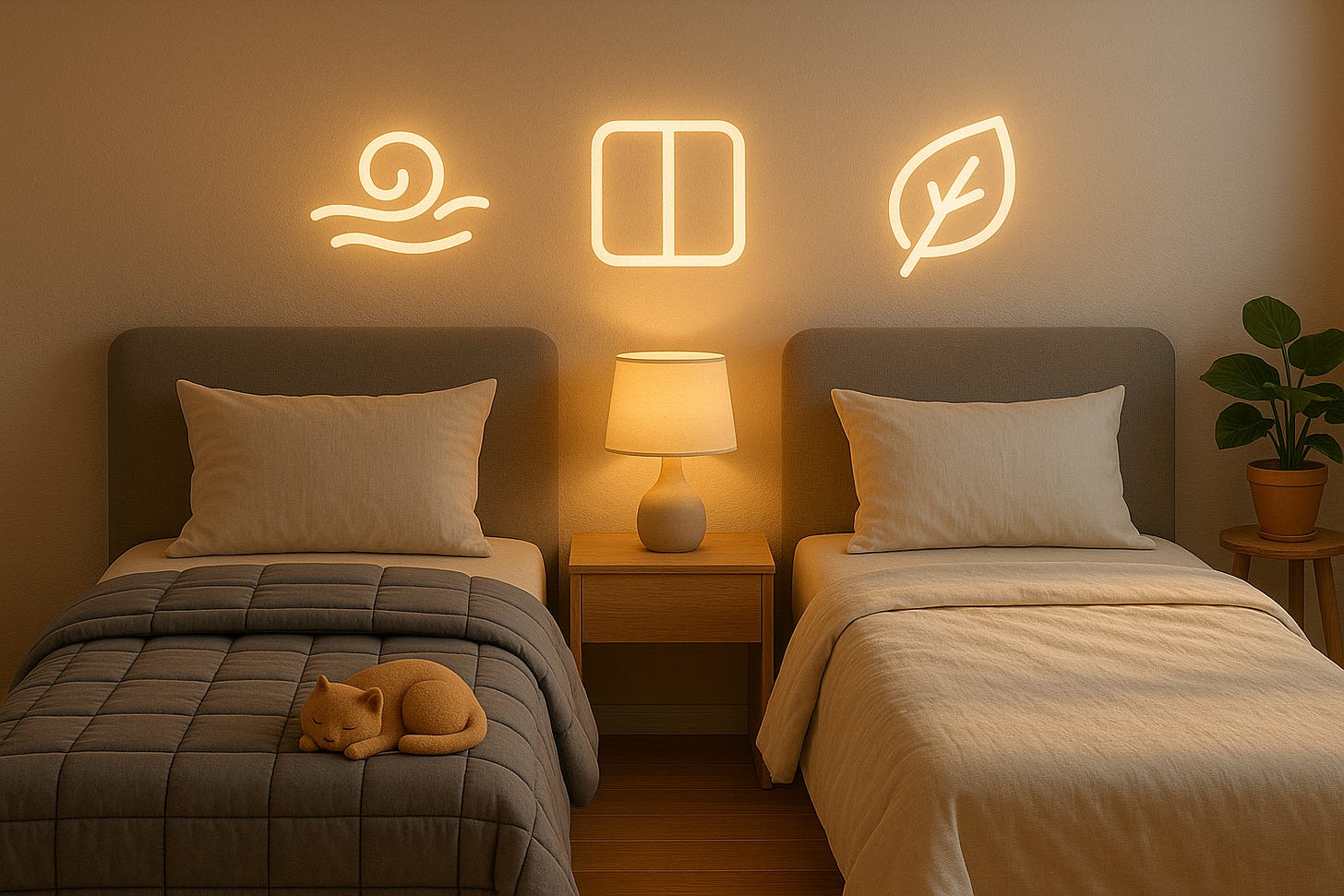Sleep Optimization: Your Ultimate Guide to Restful Nights
Getting quality sleep isn’t optional—it’s the foundation for a sharper mind, a resilient body, and a happier you.
Why Sleep Quality Beats Sleep Quantity
You’ve heard “get eight hours,” right?
But what if you spend those hours tossing and turning?
Quality matters more than the clock.
Better sleep means:
Sharper memory and focus
Stronger immune system
Fewer mood swings
Still, you might wonder:
“Can I really change how well I sleep?”
Yes, but not by accident.
You need the right tools and a few simple habits.
Smart Mattresses: Are They Worth It?
Imagine a mattress that knows when you’re restless and shifts to support you.
Sounds futuristic, but it’s here.
Smart mattresses track your body and help you sleep better—at least, that’s the promise.
But you might ask:
“Do I need a mattress that tracks my sleep?”
Not everyone does.
Here’s what these beds can actually do:
Adjust firmness as you move
Track your sleep without any gadgets strapped to you
Connect to your lights and thermostat for a smoother bedtime routine
Here’s what I learned after testing a few:
If you share your bed, some models get confused.
And yes, these mattresses cost more.
But if you want data without wearing a watch to bed, they’re a solid upgrade.
Circadian Lighting: Light That Works With You, Not Against You
Ever notice how bright screens at night make it harder to wind down?
That’s your body’s clock, or circadian rhythm, getting mixed signals.
Circadian lighting fixes this by shifting color and brightness through the day.
Think about this:
What if your bedroom lights helped you wake up gently and fall asleep faster?
That’s the goal. Here’s how circadian lighting helps:
Cool, bright light in the morning wakes you up
Warm, dim light at night helps you relax
Some hotels now use these lights to help travelers adjust fast
You don’t need to overhaul your house.
Start with a smart bulb in your bedside lamp.
Set it to shift from bright to soft as bedtime nears.
You’ll notice the difference.
AI Sleep Coaches: Hype or Help?
Apps and gadgets now use AI to give you sleep tips.
They claim to spot patterns and give you advice you won’t find in a generic blog post.
“Can an app really know what works for me?”
Here’s what these tools actually offer:
Spot your unique sleep patterns
Suggest tweaks based on your habits
Sync with your mattress, lights, and even CPAP machines
Don’t chase perfect scores.
Use the feedback to spot real problems, like waking up at 2 a.m. every night, then try the fixes.
Let the tech work for you, not stress you out.
The New Sleep Trends: What’s Worth Trying?
Sleep is big business, and everyone has a new trick.
But which ones actually help?
Here’s what’s catching on:
Personalized tips: AI tools suggest changes based on your sleep, not someone else’s.
Better bedding: Weighted blankets and natural fabrics can help you stay cool and calm.
Mindful wind-down: Sleep anxiety is real. Techniques like deep breathing or CBT-I (a fancy name for sleep therapy) help your brain switch off.
Separate beds: More couples sleep apart for better rest. Not romantic, but effective.
Do you need all this?
No.
But picking one or two can make a big difference.
Quick Wins for Better Sleep
Let’s get practical. You don’t need a lab or a loan to sleep better tonight. Try these:
Go to bed and wake up at the same time, even on weekends
Keep your room dark, cool, and quiet
Avoid screens an hour before bed (or use night mode)
Try a short meditation or stretch before sleep
Use smart tech if it helps, but don’t obsess over the numbers
And here’s the shortcut:
Consistency beats perfection.
If you miss a night, don’t sweat it.
Get back on track the next day.
The Bottom Line
Better sleep is possible, and you don’t need to overhaul your life to get it.
Mix a few smart tools with some simple habits, and you’ll see real changes.
Remember: Sleep isn’t a luxury—it’s your secret weapon.
Ready to wake up refreshed?
Try one tip tonight and see how you feel tomorrow.
References
Mathunjwa, B. M., Kor, R. Y. J., Ngarnkuekool, W., & Hsu, Y. L. (2025). A Comprehensive Review of Home Sleep Monitoring Technologies: Smartphone Apps, Smartwatches, and Smart Mattresses. Sensors (Basel, Switzerland), 25(6), 1771. https://doi.org/10.3390/s25061771
Scott, A. J., Webb, T. L., Martyn-St James, M., Rowse, G., & Weich, S. (2021). Improving sleep quality leads to better mental health: A meta-analysis of randomised controlled trials. Sleep medicine reviews, 60, 101556. https://doi.org/10.1016/j.smrv.2021.101556
Ramar, K., Malhotra, R. K., Carden, K. A., Martin, J. L., Abbasi-Feinberg, F., Aurora, R. N., ... & Trotti, L. M. (2021). Sleep is essential to health: an American Academy of Sleep Medicine position statement. Journal of Clinical Sleep Medicine, 17(10), 2115-2119. https://doi.org/10.5664/jcsm.9476
Xie, W., Lu, D., Liu, S., Li, J., & Li, R. (2024). The optimal exercise intervention for sleep quality in adults: A systematic review and network meta-analysis. Preventive medicine, 107955. https://doi.org/10.1016/j.ypmed.2024.107955
Zhang, Z., Jin, X., Wan, Z., Zhu, M., & Wu, S. (2021). A Feasibility Study on Smart Mattresses to Improve Sleep Quality. Journal of healthcare engineering, 2021, 6127894. https://doi.org/10.1155/2021/6127894








